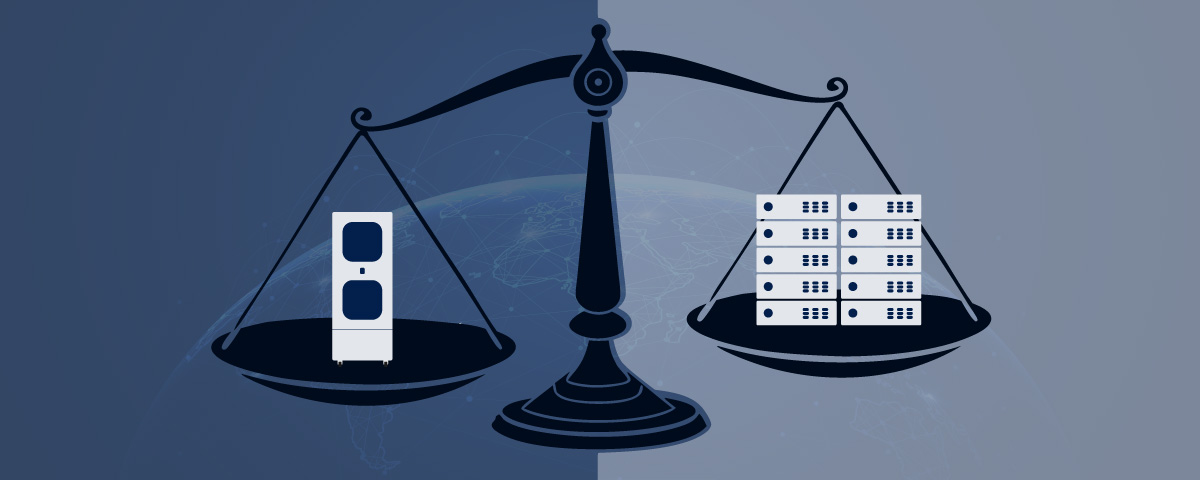Latency… It’s the new challenge of our data-driven world and the most pressing reason that businesses need to re-think their data storage. Those that think this doesn’t apply to their model risk being left behind by competitors who are addressing the issue now.
To fully understand the implications of what’s fast becoming an outdated storage option – that of the centralised cloud – we must first accept this very real fact:
The amount of data being generated by today’s technology has and continues to increase exponentially.
This is being fuelled by multiple sources, including:
- Smart devices and the whole IoT landscape
- Streaming services
- 5G technology
- Artificial Intelligence
- Machine learning
- Data privacy
All of this data needs to be analysed, sorted and acted upon where necessary. The process, in most cases, needs to happen instantaneously. Even the slightest of delays (latency) affects data quality – and this is something your customers are not prepared to accept.
So, what’s the answer?
Quite simply, the answer is to reduce the distance that data has to travel for it to be processed. In other words, we need to decrease our reliance on centralised cloud storage.
This outdated option has three major sticking points:
- It’s slow
- It’s expensive
- It can’t scale
 Speed is one of the most important factors for all data capture and storage. Even though an estimated 90% of data produced today is simply noise, it still needs to be sorted, analysed and actioned – even if that action is deletion.
Speed is one of the most important factors for all data capture and storage. Even though an estimated 90% of data produced today is simply noise, it still needs to be sorted, analysed and actioned – even if that action is deletion.
Sure, there are some businesses that don’t depend on real-time analysis. But as we move ever-deeper into a smart device-driven landscape, this will apply to fewer and fewer cases. Sending data to a centralised cloud means it travels hundreds or thousands of miles. This distance takes time, albeit milliseconds. However, these units equal unacceptable delays, even if time-sensitive reactions might not be something that your outfit is worried about today.
When it comes to cost, moving enormous amounts of data across distance costs money – too much money. Globally, nearly 2.5 quintillion bytes of data are produced every 24 hours. With over 75 billion smart devices across the planet competing for instantaneous data analysis, it soon becomes blatantly obvious that the old methods of centralised data storage are no longer suitable.
The home of centralised data – the enormous giant data centres sited across the world – are already nearing or are at capacity. They’ve been constructed over the past 20 odd years, with no way of increasing their size.
Thankfully, there’s already a viable solution to the problem.
Edge computing – or a hybrid edge-centralised combination
Edge computing or, more accurately, Edge data storage, is exactly as it sounds. The ability to store and/or analyse data close to where it’s generated. In other words, at ‘the edge’.
The technology is already up and running, and most companies rely on edge technology. Micro data centres make it easy for businesses to deploy data storage at any location. This might be within an office environment, in a suitable outside space or even in a remote location far from any useful infrastructure or power.
Global, data-driven businesses in all industries need to sit up and take note, or risk being left behind while their competitors advance. Fast, offering true value for money and fully scalable, the Micro Data Centre is already being embraced by many of your rivals. Isn’t it time your business discovered the future too…





